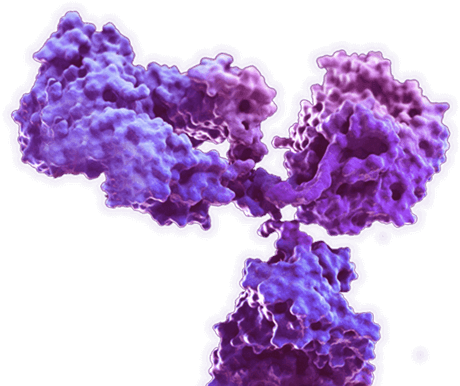AibGenesis™ Mouse Anti-Arabidopsis AT4G16490 Antibody (CBMOAB-0090FYC)
Cat: CBMOAB-0090FYC

Certificate of Analysis Lookup
To download a Certificate of Analysis, please enter a lot number in the search box below. Note: Certificate of Analysis not available for kit components.
Lot Number
To download a Certificate of Analysis, please enter a lot number in the search box below. Note: Certificate of Analysis not available for kit components.
Lot Number
| Size: | |
| Conjugate: | |
| Inquiry |
- Specifications
- Application Information
- Target
- Reference
Specifications
| Host species | Mouse (Mus musculus) |
| Species Reactivity | A. thaliana (Arabidopsis thaliana) |
| Clone | MO0090FC |
| Specificity | This antibody binds to Arabidopsis AT4G16490. |
| Format | Liquid or Lyophilized |
| Storage | Store at 4°C: short-term (1-2weeks) Store at -20°C: long-term and future use |
| Purity | > 90% was determined by SDS-PAGE |
| Purification | Purified with Protein A or G affinity chromatography |
Application Information
| Application | WB, ELISA |
| Application Notes | ELISA: 1:1000-1:3000 Other applications are to be developed. The optimal dilution should be determined by the end user. |
Target
| Product Overview | Mouse Anti-Arabidopsis AT4G16490 Antibody is a mouse antibody against AT4G16490. It can be used for AT4G16490 detection in Western Blot, Enzyme-Linked Immunosorbent Assay. |
| Alternative Names | Putative uncharacterized protein At4g16490/dl4270c; At4g16490 At4g16490/dl4270c |
| UniProt ID | Q8GWN8 |
| Protein Refseq | The length of the protein is 472 amino acids long. The sequence is show below: MVSVEEPLSHSNSTRFPLTTDFYGSSSPSAARLHRQAGRSMRTVRSNFYQSGDQSCSFVGSIGDKSEYASEFLSDSVIDMRLGELALKNSNSLNSNASSMKEEAFLDISQAFSDFSACSSDISGELQRLACLPSPEADRNESGGDNEAEHDPELEREPCLGFLQRENFSTEIIECISPEDLQPTVKLCIDGLRSSSVAIKRSAAAKLRLLAKNRADNRVLIGESGAIQALIPLLRCNDPWTQERAVTALLNLSLHDQNKAVIAAGGAIKSLVWVLKTGTETSKQNAACALLSLALLEENKGSIGACGAIPPLVSLLLNGSCRGKKDALTALYKLCTLQQNKERAVTAGAVKPLVDLVAEEGTGMAEKAMVVLSSLAAIDDGKEAIVEEGGIAALVEAIEDGSVKGKEFAILTLLQLCSDSVRNRGLLVREGAIPPLVGLSQSGSVSVRAKRKAERLLGYLREPRKEASSSSP. |
Reference
| Reference | 1. Pieczynski, M., Wyrzykowska, A., Milanowska, K., Boguszewska-Mankowska, D., Zagdanska, B., Karlowski, W., ... & Szweykowska-Kulinska, Z. (2018). Genomewide identification of genes involved in the potato response to drought indicates functional evolutionary conservation with Arabidopsis plants. Plant biotechnology journal, 16(2), 603-614. 2. Choi, J. H., Kim, J. W., & Oh, M. H. (2022). Identification of Feronia-interacting proteins in Arabidopsis thaliana. Genes & Genomics, 1-9. 2. Garrido, A. N., Francom, T., Divan, S., Kesserwan, M., Daradur, J., & Riggs, C. D. (2021). Overexpression of HOP2 induces developmental defects and compromises growth in Arabidopsis. bioRxiv, 2021-08. |
For Research Use Only | Not For Clinical Use.
Online Inquiry


